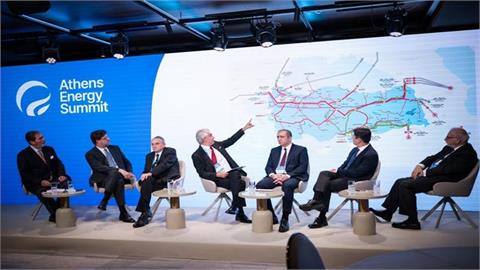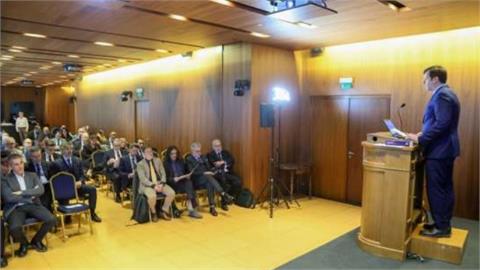Last Friday (29/1), in the context of its participation in the Public Consultation organized by the Ministry of Environment and Energy, IENE submitted its final observations and comments regarding the first National Climate Law of Greece. These were formulated following a thorough review and comments contributed by the Institute’s Scientific Committees.
Last Friday (29/1), in the context of its participation in the Public Consultation organized by the Ministry of Environment and Energy, IENE submitted its final observations and comments regarding the first National Climate Law of Greece. These were formulated following a thorough review and comments contributed by the Institute’s Scientific Committees.
According to the Institute's introductory comments, "the adoption of the first National Climate Law is undoubtedly a step in the right direction, since through its provisions the decarbonization of the energy system, the county's infrastructure and RES are further promoted. However, this bill, although it provides useful innovations regarding the process of energy transition, at the same time it presents certain weaknesses, which can prove counterproductive».
As the Institute observes, "Through this law Greece adopts a specific legal framework for the alignment of its national policy with the objectives of the European Climate Law aiming to 55% emission reduction until 2030 and the transition to climate neutrality by 2050. However, it should be emphasized that the bill goes beyond the EU's ambitions in a number of areas, while it is failing to create an effective institutional framework that offers equal opportunities to all technologies that have the potential to contribute to the transition".
Regarding the proposal of the law for the commitment of Greece to abolish the sale of internal combustion engine vehicles, as early as 2030, IENE considers that such a move is premature in view of the developments in the EU and the growth of the national infrastructure network. At the same time, the law ignores the benefits of renewable fuels that can help to directly reduce emissions from all road transport as a supplementary to electromobility. IENE considers that it is appropriate to maintain the sale of new cars with internal combustion engines after 2030, provided that the vehicles will use low carbon liquid fuels.
Another point of contention as highlighted by IENE concerns natural gas and its role as the preferred transitional fuel. The law appears to ignore completely the mixture with locally produced biomethane and hydrogen, since there are no provisions to gradually reduce the participation of natural gas in the mixture and increase that of biomethane and hydrogen. At the same time, the bill does not include provisions that favor the further development of circular economy through the production of biomethane from residues of the primary sector, while there is also no mention at all regarding the implementation of Carbon Capture and Storage systems (CCUS).
IENE's remarks and comments also cover the need for lower emissions by buildings (which the bill apparently ignores) and the installation and use of domestic oil and gas fired boilers which need to be in place well after 2030 as they can use low carbon liquid fuels and help improve energy efficiency with economic competitive ferms. Furthermore, detailed analysis of the economic and social impact which would ensure a fair and just transition for all citizens is reportedly absent.
In the context of the above public consultation by the Ministry of Environment & Energy, Costis Stambolis, Chairman and Executive Director of IENE, stated: “The comments submitted by IENE regarding this very important legislative framework is the result of collective effort through the participation of the Institute’s Scientific Committees. Six out of eight Scientific Committees of IENE actively participated in this consultation: the Electricity Committee, the Committee on Natural Gas-Biomethane & Hydrogen, the Committee on Renewable Energy Sources, the Committee on Energy Efficiency, the Committee on Hydrocarbons (upstream), the Committee on Refining, Storage and Petroleum Trading (downstream). It is the first time that there has been such a wide mobilization of the Institute’s Scientific Committees, which fully cooperated between them but also worked systematically and contributed effectively in the formulation of concrete, realistic and very constructive proposals".




